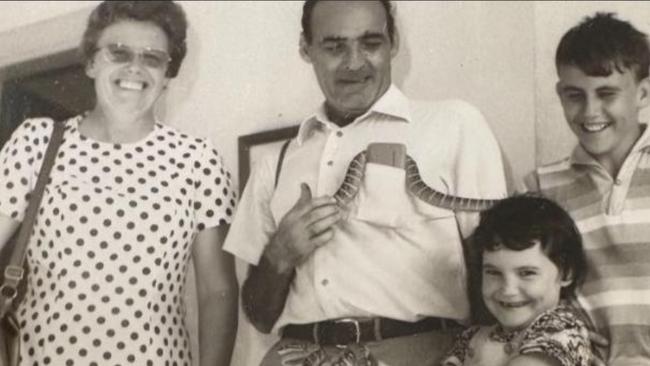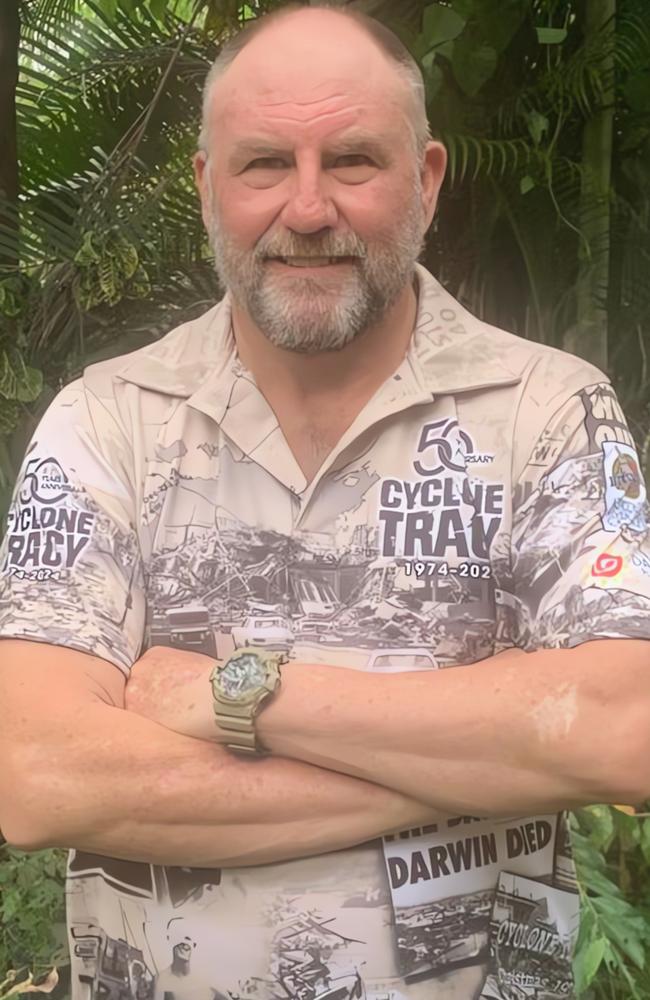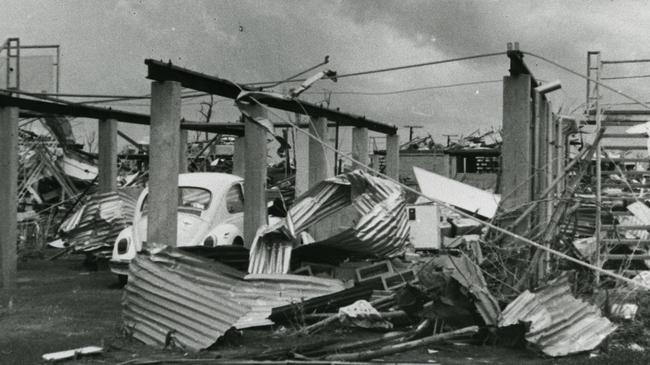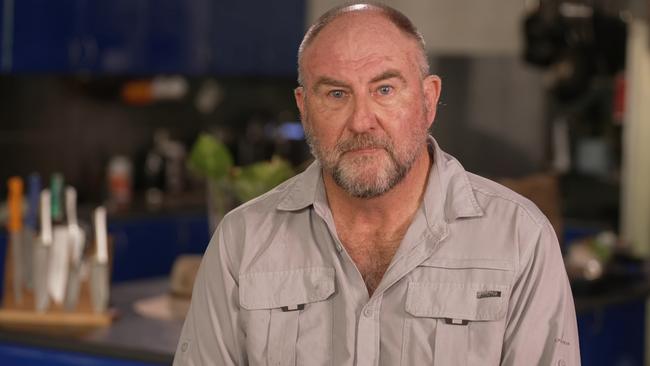Cyclone Tracy 50 years: Antony Bullock fled Zimbabwe as a boy only to face a ferocious cyclone
Leading up to the 50-year anniversary of Cyclone Tracy, Antony Bullock has emerged as the ‘unofficial messenger’ for survivors. When the cyclone struck, Antony was 12 and had just arrived from war-torn Zimbabwe. This is his story.

News
Don't miss out on the headlines from News. Followed categories will be added to My News.
Antony Bullock is no stranger to danger.
Growing up as a young boy in Zimbabwe, then called Rhodesia, Bullock was constantly exposed to threats and violence.
“Things were quite scary,” Mr Bullock says.
“I vividly recall seeing bodies on the road.
“We escaped Rhodesia with our lives and whatever possessions we could carry.”
Even Mr Bullock’s birth was remarkable – a baptism by cyclone.

“When I was born, a large cyclone crossed the Mozambique coastline and destroyed quite a bit of our farm,” he says.
Mr Bullock recounts his father’s mad dash to the hospital, cruising 30km down a mountain with a waterlogged engine.
“That’s how my life started,” he says.
Mr Bullock and his family escaped Rhodesia a decade later, eventually settling in Darwin in early 1974.
“Given my mother’s experience teaching in Africa, the Department of Education thought mum would work well in the Territory, which she did. She had a fulfilling career with education up here.”
By the Christmas of 1974, the Bullock family was settling into their new life in Wanguri in Darwin’s northern suburbs.
“We were preparing for a Christmas lunch, as was the tradition in our family,” he recalls.
“My mother was the principal of Millner Primary School and her fellow teachers were coming to our house to celebrate Christmas.”
Those plans were interrupted close to midnight on Christmas Eve.
“I woke to the whole house shaking,” he says.
“It was like an earthquake. The wind was howling.
“That was the beginning of the night for us.”
It was then, surrounded by the roaring wind, that the power went out.
“We started to lose control – humans need control,” he says.
“Without control, you’re in trouble.”

As the eldest son, Mr Bullock stepped into action.
He describes running to the kitchen to grab the key to access the makeshift cyclone shelter downstairs.
“The lightning was savage – it was the only light in the household.
“It would illuminate the room for a nanosecond.”
As Mr Bullock reached the kitchen, the full force of the cyclone tore his family home apart. “As I grabbed the key, the whole side of the kitchen disappeared,” he says.
“It was torn away as fast as you can blink your eye.
“Things change so quickly – it had only been half an hour.”
The family miraculously made it downstairs to the brick bathroom – the most secure part of the house.
“Mum was sitting on the toilet, I sat to her left, my father and sister sat on the other side – we were inches apart,” he recalls.
“From that point onwards it was a living hell.
“You can’t describe what it sounded like.
“I’ve never heard a sound that loud.”
It was when Mr Bullock’s mother began to pray, that he first accepted his family’s fate.

“Mum started praying – that was the first time I thought ‘This is what death looks like’,” he says.
Fifty years on, now as a father and a grandfather, Mr Bullock can understand the trauma his parents suffered that night.
“I now see what my parents experienced through a different lens,” he says.
“You begin to sense the enormous stress and burden that parents and carers went through during that episode.”
Mr Bullock’s adolescence was defined by the rebuilding of Darwin.
“Darwin grew out of the ashes,” he says.
“Everyone was involved with the rebuild.”
Mr Bullock was quick to join the effort, and when he was 18 he was accepted into an engineering company that was “heavily involved in the process of rebuilding Darwin”.
“It was an ongoing project at a ferocious level for two decades,” he recalls.
“As soon as one generation got too old, the next generation took it on.”
As the 50-year anniversary of Cyclone Tracy draws closer, Mr Bullock has assumed the role of the “unofficial messenger” of survivors.
“We are the last generation of survivors,” he says.
“It’s very important that our story is told by us – not those who didn’t experience that event.
“It’s also important to remember that Cyclone Tracy was a moment of national unity – the whole of Australia got together and supported Darwin through that time.
“That should never be forgotten.”
Mr Bullock still struggles to understand how he and so many others survived the cyclone.
“People cannot comprehend we survived it. There were 10,000 miracles that night – every single person has a unique story of how they survived.”
More Coverage
Originally published as Cyclone Tracy 50 years: Antony Bullock fled Zimbabwe as a boy only to face a ferocious cyclone





